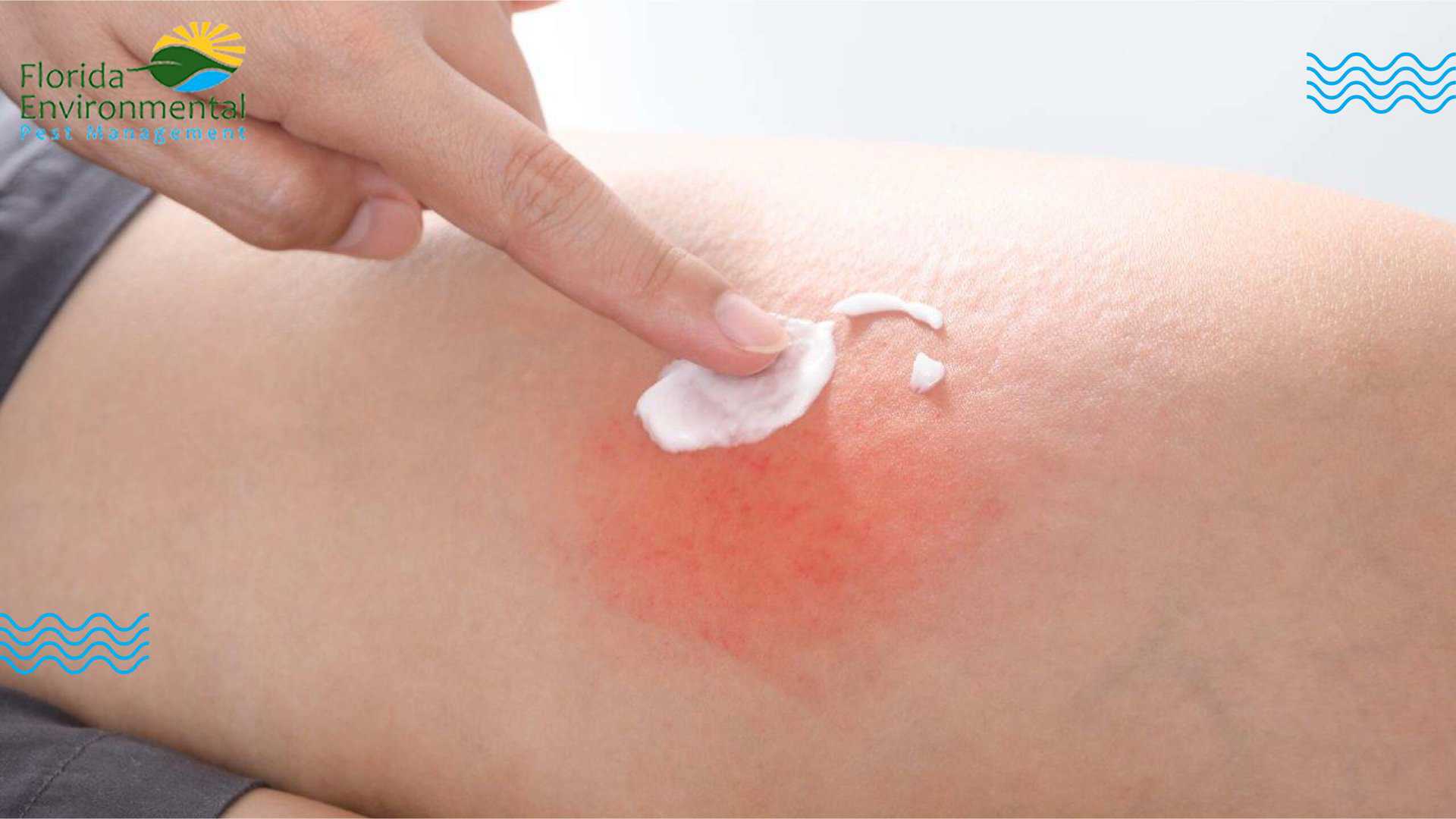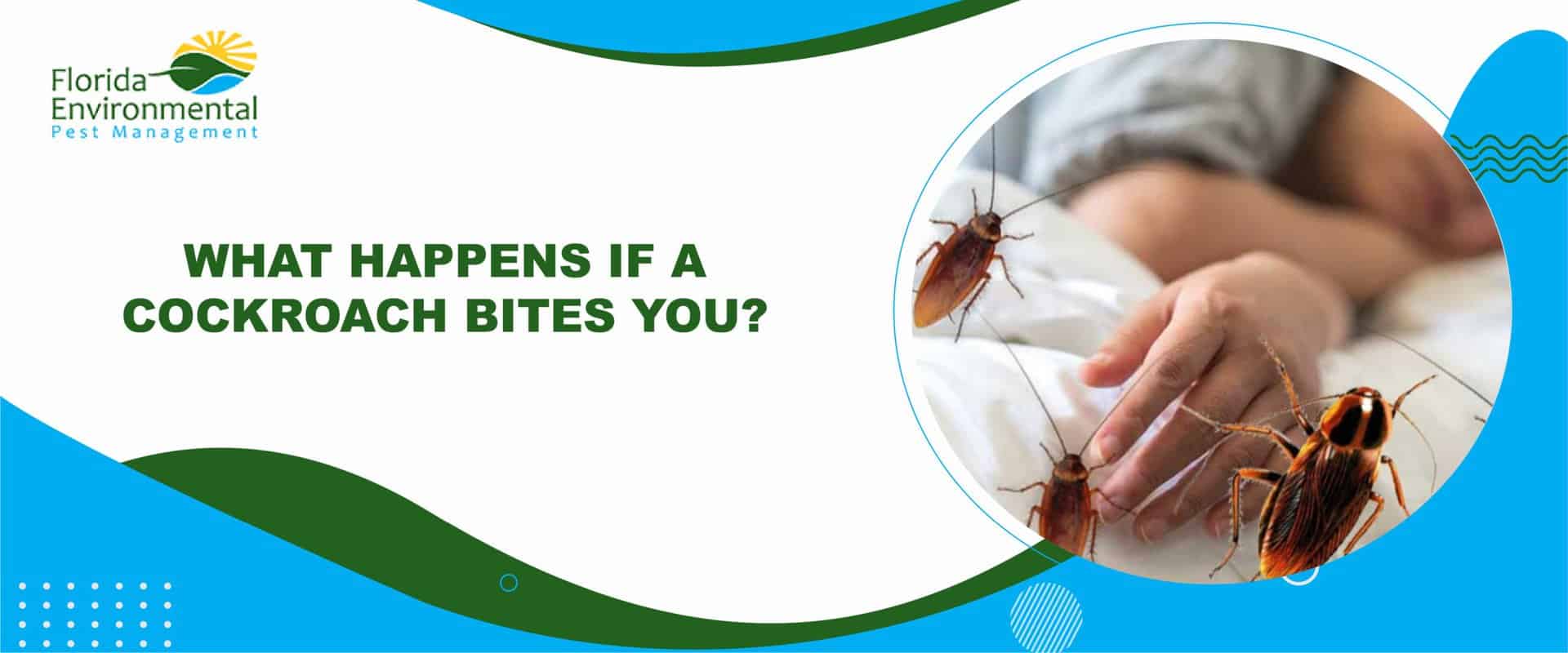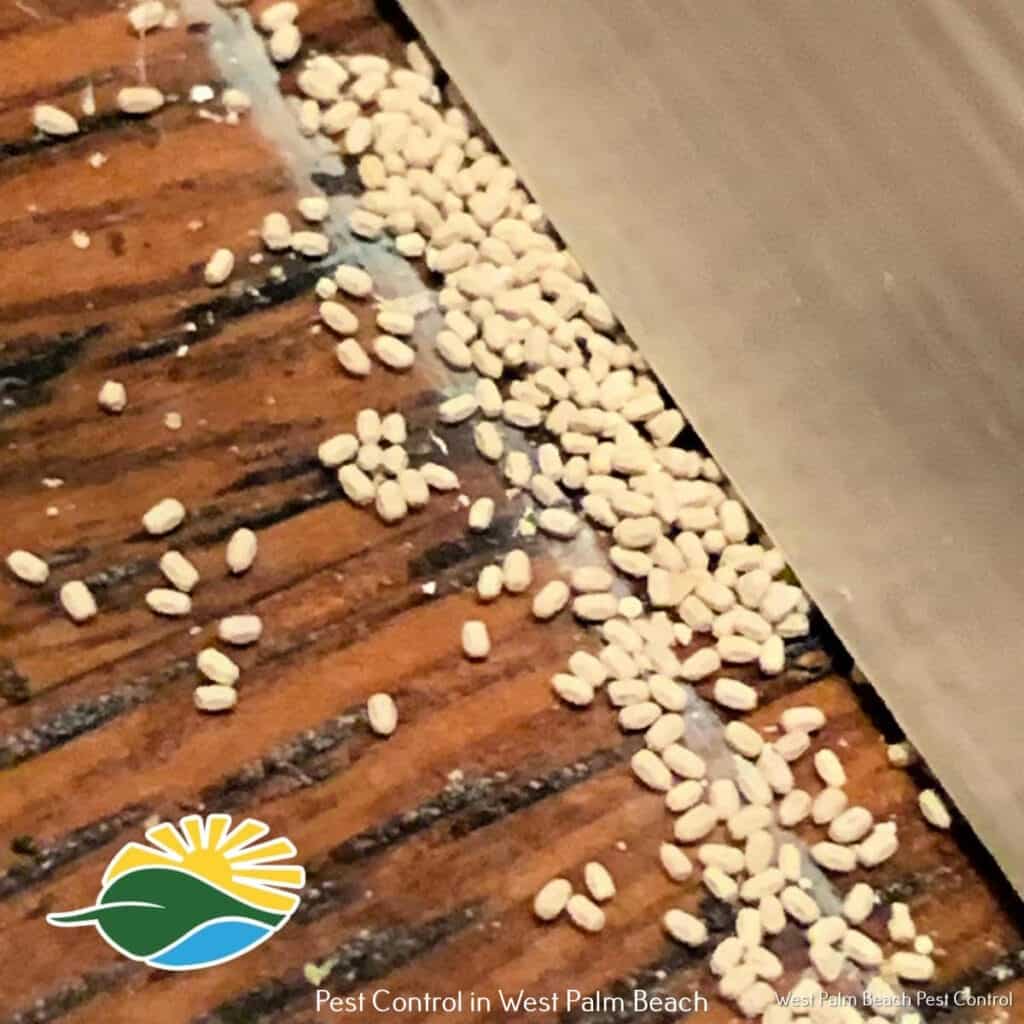Did you know that cockroaches are omnivores? Yes, they eat both plants and meat. They are known to bite humans, and they will eat human flesh, dead or alive. However, they are more likely to bite in other areas. Getting a bite from a roach is rare, but it is crucial to understand what happens and what to do if you are bitten.
When Cockroaches Bite
Roaches are likely to bite at night. This is because they prefer the dark to live and feed. This is also why we often don’t see a cockroach in the light or during the day. Do cockroaches bite humans? Folks who have been bitten have most often been bit in the dark while sleeping. Bumps will appear and are noticeable the following day.
Where You May See A Cockroach Bite
Just like other insects, roaches bite in specific areas of the body. However, they usually target the face, mouth, hands, and fingers. This is likely because there is a scent of food left in those areas. Therefore, washing your hands and face after a meal or before bed becomes even more critical to avoid a nightly visit from a cockroach. Identifying cockroaches and other insects is important in determining if you have a roach bite.
Cockroach Bites Vs. Insect Bites
Bites from cockroaches are more intense than other insect bites. They are usually larger and itchy. It will look similar to a bed bug bite but larger. They may swell and look similar to mosquito bites. Cockroaches are more powerful than other insects when it comes to biting. When a roach bites, the bite force is 50x stronger than its body weight. However, it is possible for you not to feel it until you wake up in the am.
How Likely Am I To Get A Cockroach Bite?
Cockroaches transmit diseases, and that is why people will worry about getting bit by a roach. The truth is, cockroach bites are extremely rare. Cockroach “bites” on humans have only been recorded a few times throughout history. They will only bite if they detect food. Since we are likely to clean our faces and hands before bed, you don’t have to worry. When bites have occurred, extreme infestations were in the home.

Treating Cockroach Bites
If you do get bit, there are several ways to treat cockroach bites. Using a combination of home remedies and over-the-counter medications, you can recover with ease. These treatment options include:
- Wash with soap and water – this will sanitize the area to avoid secondary infections.
- Apply the juice from citrus fruits – the juice from citrus fruits, especially lemons, will alleviate itching and reduce swelling. If the bite has been scratched by anything, it will sting when applied.
- Apply ice – ice and ice packs are great for swelling and alleviating itchiness. Rather than touching the bite, stop rubbing and cool it off.
- Hydrogen Peroxide or Rubbing Alcohol – These chemicals help sterilize the bite and remove bacteria from the area. The bacteria can lead to severe inflammation, which can be a sign of an allergic reaction.
- Use OTC medications – this can be used with home remedies or in place of. Using acetaminophen and ibuprofen can help with swelling and other reactions to the bite.
Avoiding Cockroach Bites
So we now know that cockroaches bite humans; the next thought is how to avoid getting bit. Fortunately, there are ways for you to prevent the problem before it happens.
Be Mindful Of Food
Going to bed clean of food residue is essential. It also means no eating in bed, so you don’t have to worry about them crawling around you while you sleep. This also means taking a good look at your food storage and the cleanliness of the area.
Rather than storing your food in the original boxes and bags, move them into plastic bins to keep cockroaches out. It also makes it harder for them to smell the food, let alone get to it. If you have pets, do not leave exposed food out overnight. Always make sure that the kitchen has no food residue or leftovers sitting on the counters.
Schedule Regular Pest Control
Having an exterminator visit a couple of times a year can keep an eye on signs of cockroaches and other pests. This means you can combat them before an infestation set in. Regular inspections give you control over pest control needs and avoid costly home repairs. Some insurance companies offer incentives for keeping a maintenance and repair schedule. Including pest inspection is often included.





